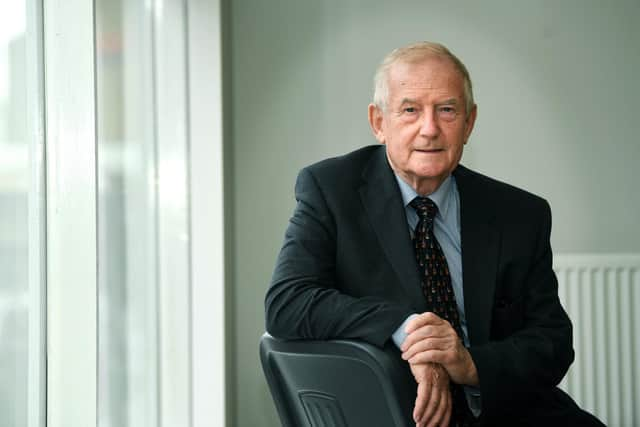Automatism - victims of road traffic offences deserve a legal system that works for them - Barry Sheerman
It is not only one of the cornerstones of a democratic society, but a principle that people put their trust in.
When people’s access to justice is limited, or that their experience is one of not being treated equally, trust dissipates, and people lose faith in the most foundational institutions that structure our society.
Advertisement
Hide AdAdvertisement
Hide AdThis summer Barristers are on strike over legal aid fees. The backlog in criminal courts is reaching record levels. 77 more courts are due to close by 2025/26.


The cracks in our criminal justice system are showing. With this comes fading trust in the system, as people see their access to justice vanish. Among the victims of our creaking justice system are the families and casualties of road death offences.
In 1981 I founded the Parliamentary Advisory Council for Transport Safety (PACTS) to protect human life through the promotion of transport safety. I’ve had a long interest in this area and have witnessed decades of campaigning by the families of road death victims. PACTS and other groups have long campaigned for improved investigations. In 1994 a report by RoadPeace identified failings in police collision investigations and a justice campaign in 1998 called for national standards.
There have been three inspections by the Crown Prosecution Service, in 2002, 2008 and 2016 into prosecutions arising from road traffic incidents with each one identifying failings that needed addressing.
Advertisement
Hide AdAdvertisement
Hide AdThis begs the question. Why are families still struggling to obtain justice? One explanation for this is the use of automatism as a legal defence. Automatism is a defence that in essence involves claiming that the accident was caused by factors external to the defendant, such as sneezing, or factors internal to the defendant, such as a medical condition. A successful plea of non-insane automatism due to external factors often entitles the defendant to acquittal.
A successful plea of insane automatism due to internal factors entitles the defendant to the special verdict of not guilty by reason of insanity.
The defence of automatism can obviously be used in ways that are just. But there are other settings where this defence is being used unjustly. Automatism has no statutory basis, no Act of Parliament defines it. Different judges have produced differing definitions and precedents.
The present law has been subject to much criticism. A judge once referred to it as a ‘quagmire’. Another as ‘illogical, little short of a disgrace and should be abolished’.
Advertisement
Hide AdAdvertisement
Hide AdVarious bodies have reviewed the defence and recommended reform, including the Law Commission in 2013. Despite all this, it has remained unchanged.
In the past few years, more cases have emerged of drivers not being charged because they have claimed automatism as a defence. My concern is that the CPS will become reluctant to prosecute these cases, which means that unscrupulous defendants who use the defence fraudulently will get away uncharged.
The families of road traffic victims deserve justice. I am not calling for the law to be overhauled, but for it to be reviewed to ensure we deliver justice for victims.
In 2013, the Law Commission proposed provisional reform of the defences of insanity and automatism. The Government currently has no plans to update the law in this area or to review it more widely. The Government needs to think again.
Advertisement
Hide AdAdvertisement
Hide AdThis Summer I’ve launched my campaign for a full Government review into the use of automatism as a legal defence. This would identify current issues in the legal system and avenues for improvement.
Whilst our eyes are on the Barristers strikes, the courts backlog and closures, there are issues below the surface that are widening the cracks in our justice system.
People need to trust that the law works for them. It is these rare interactions with the state that will often define people’s view of the law for their entire lives. We must and can do better. Victims of road traffic offences deserve justice and a legal system that works for them.